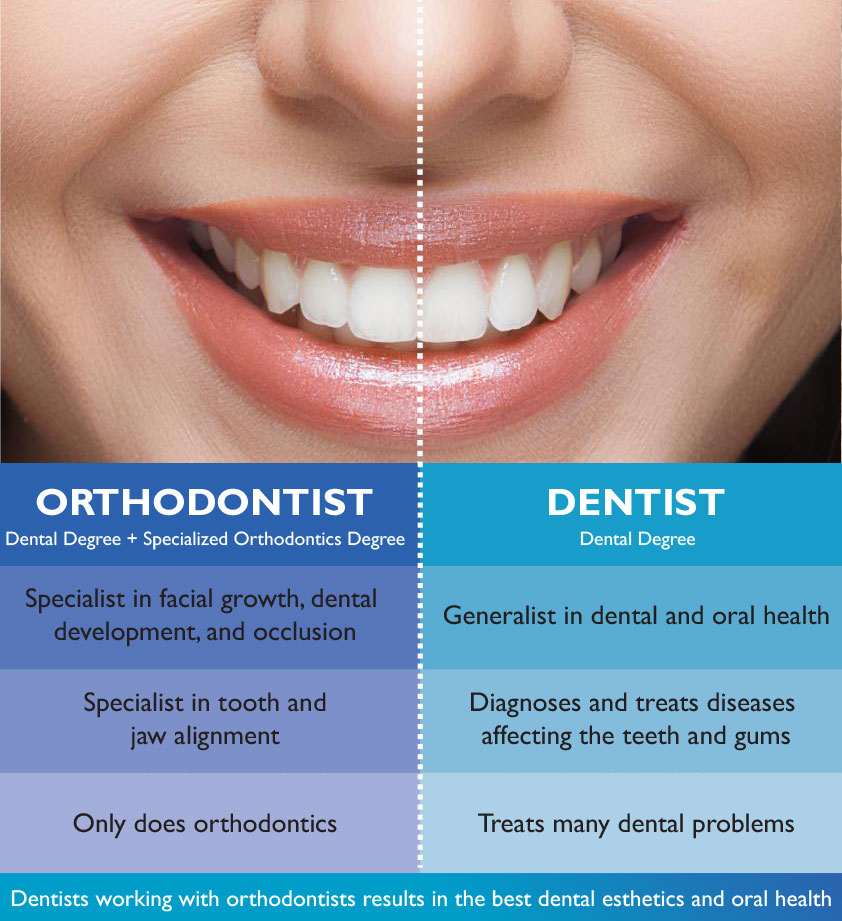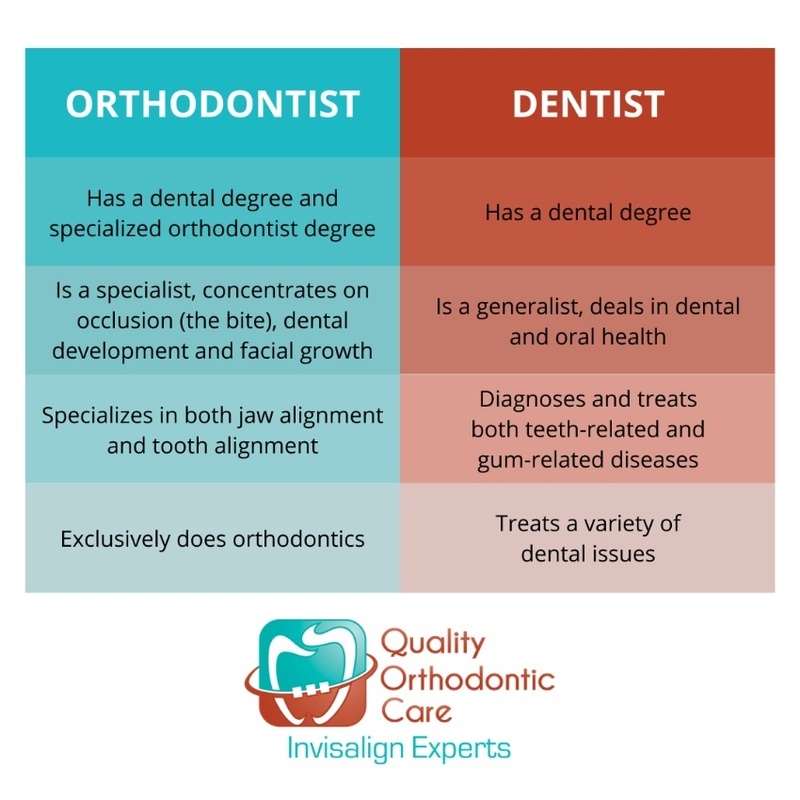Getting My Causey Orthodontics To Work
Getting My Causey Orthodontics To Work
Blog Article
Not known Details About Causey Orthodontics
Table of ContentsFacts About Causey Orthodontics UncoveredThe smart Trick of Causey Orthodontics That Nobody is DiscussingIndicators on Causey Orthodontics You Need To KnowSome Known Details About Causey Orthodontics A Biased View of Causey OrthodonticsCausey Orthodontics Things To Know Before You Get ThisThe Greatest Guide To Causey Orthodontics
What is the difference between a dental expert and an orthodontist? All dental practitioners, including orthodontists, treat the teeth, periodontals, jaw and nerves.
You can assume of both medical professionals that deal with gum tissue and teeth issues. The primary difference is that becoming an orthodontist needs a specific specialized in treating the misalignment of the teeth and jaw.
9 Simple Techniques For Causey Orthodontics
An orthodontist is a dentist that has actually gone through training to specialize in the diagnosis, avoidance and therapy of irregularities in the jaw and teeth. They can additionally recognize potential troubles in teeth positioning that may develop when problems are left without treatment (emergency orthodontist near me).
This consists of all the necessary education and learning to come to be a basic dental professional. According to the American Student Dental Organization (ASDA), it implies you will certainly require to have either a Physician of Medicine in Dental Care (DMD) or a Doctor of Dental Surgical Treatment (DDS). To put it simply, orthodontists require to complete oral college and after that acquire an orthodontics specialty education and learning.
Some orthodontists additionally get their masters in craniofacial biology. orthodontist services (https://citysquares.com/b/causey-orthodontics-25774545). Lots of dental schools provide restricted orthopedic training and guideline, which is why general dental practitioners need to go to orthodontic institution after college graduation. Orthodontic residency programs supply intensive training for this sort of dental specialization. These programs focus on two certain areas or self-controls: Dentofacial Orthopedics: This research concentrates on assisting teeth and jaw advancement.
Our Causey Orthodontics PDFs

 These include apparatus such as dental braces, retainers and Invisalign. What does an orthodontist do, and what do they focus on? The general goal of an orthodontist is to boost a client's bite. Not everyone is birthed with straight teeth, and an orthodontist will guarantee that clients obtain uniformly spaced straight teeth.
These include apparatus such as dental braces, retainers and Invisalign. What does an orthodontist do, and what do they focus on? The general goal of an orthodontist is to boost a client's bite. Not everyone is birthed with straight teeth, and an orthodontist will guarantee that clients obtain uniformly spaced straight teeth.
Facts About Causey Orthodontics Uncovered
The American Organization of Orthodontists suggests your first check up by age 7. You'll require to see your orthodontist if you have an imbalance in your teeth, likewise referred to as malocclusion. Additionally, if you see uneven bite patterns, a somewhat irregular jaw, or when your teeth are overcrowded, you will likely require orthodontic treatment.
In addition, we use adjustable therapy timetables, flexible payment choices and an enjoyable, enjoyable experience.
An orthodontist is a dental practitioner trained to identify, prevent, and treat teeth and jaw abnormalities. They fix existing problems and are trained to determine issues that might establish in the future. Orthodontists work with individuals of all ages, from youngsters to adults. Individuals usually link an ideal smile with health.
Rumored Buzz on Causey Orthodontics
Malocclusion, or misaligned teeth, can bring about dental issues, including dental caries, gum illness, and challenging or excruciating chewing. Not every person is birthed with straight teeth. If you have a bad bite or big rooms in between your teeth, you may wish to consult a dental practitioner focusing on orthodontic care.
(Picture Credit: DigitalVision/Getty Images) Orthodontists utilize fixed and removable oral gadgets, like dental braces, retainers, and bands, to alter the setting of teeth in your mouth. Orthodontic treatment is for oral irregularities, including: Uneven teethBite troubles, like an overbite or an underbiteCrowded teeth or teeth that are as well much apartJaw misalignmentThe goal of orthodontic treatment is to boost your bite.
What Does Causey Orthodontics Do?

All orthodontists are dental experts, however not all dentists are orthodontists. Orthodontic residency programs provide intensive, focused instruction for oral experts. They concentrate on two locations: Just how to correctly and securely relocate teeth Just how to effectively guide development in the teeth, jaw, and faceOnce an orthodontist has actually finished training, they have the alternative to come to be board accredited.
Malocclusion leads to tooth congestion, a twisted jaw, or irregular bite patterns. Malocclusion is generally treated with: Your orthodontist affixes steel, ceramic, or plastic square bonds to your teeth.
Our Causey Orthodontics Diaries
If you have just minor malocclusion, you may have the ability to make use of clear dental braces, called aligners, rather than conventional dental braces. Some individuals need a headwear to assist relocate teeth into line with pressure from outside the mouth. After braces or aligners, you'll require to wear a retainer. A retainer is a personalized device that keeps your teeth in position.
Report this page